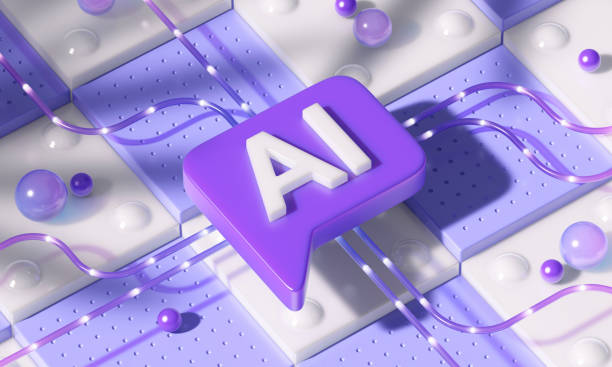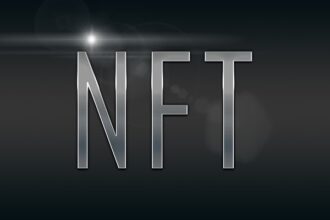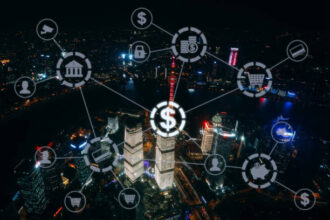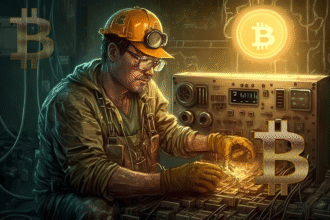Artificial Intelligence (AI) and blockchain are two of the most disruptive technologies of our time. Separately, they have driven significant advancements across various industries, but when combined, they create new opportunities that could redefine the future of technology. This intersection of AI and blockchain is not merely about merging two powerful technologies but it’s about creating a synergy that enhances the capabilities of both.
Understanding AI and blockchain
Artificial Intelligence refers to the simulation of human intelligence in machines, enabling them to perform tasks that typically require human intellect. AI systems are fueled by large data sets and sophisticated algorithms that allow them to learn, adapt and improve over time.
On the other hand, blockchain is a decentralized, distributed ledger technology that records transactions across multiple computers in a way that ensures the data is immutable and transparent.
Each block in the blockchain contains a record of transactions and is linked to the previous block, forming a chain. This technology underpins cryptocurrencies such as Bitcoin (BTC) and Ethereum (ETH) but has far-reaching applications beyond digital currencies.
Potential impacts of converging AI and blockchain
The intersection of AI and blockchain is characterized by their ability to address each other’s limitations and enhance their respective strengths. Below are some of the ways AI and blockchain technology can complement each other:
- Enhanced data security and privacy
AI systems require vast amounts of data to function effectively. However, the centralized nature of data storage raises concerns about security and privacy. Blockchain’s decentralized architecture offers a solution to this issue by enabling secure data sharing and storage.
By encrypting data on a blockchain, AI can access and process data without compromising privacy. This is particularly valuable in sensitive industries like healthcare, where patient data must be protected.
AI algorithms are only as good as the data they are trained on. Blockchain can provide a transparent and verifiable source of data, ensuring that AI systems make decisions based on accurate and trustworthy information. This can be crucial in areas like finance and supply chain management, where data integrity is paramount.
- Decentralized AI models
Traditional AI models are often centralized and controlled by large corporations with access to extensive computing resources. Blockchain can enable the creation of decentralized AI models, where multiple parties can contribute to and benefit from AI without a single entity having full control. This democratizes access to AI and could lead to more collaborative innovation.
- Supply chain transparency
In supply chain management, blockchain provides a transparent record of the journey of goods from origin to destination. AI can analyze this data to optimize routes, predict demand, and even detect fraud.
In other words, blockchain can track products throughout the supply chain, while AI can analyze this data to improve efficiency, reduce waste, and ensure compliance with regulations. The combination of AI and blockchain can, therefore, lead to more efficient, secure, and transparent supply chains.
- Improved healthcare
AI-powered diagnostics can be enhanced by blockchain’s secure and transparent data sharing. For example, patient records stored on a blockchain can be securely accessed by AI algorithms to provide more accurate diagnoses and personalized treatment plans.
- Sustainable and efficient energy usage
The energy sector can explore decentralized energy grids where blockchain records energy production and consumption, while AI optimizes energy distribution based on real-time data. This can lead to more sustainable and efficient energy usage.
Read also: Ferris State University Develops AI Students Capable of Bagging Degrees Like Humans
Challenges associated with the intersection of AI and blockchain
While the intersection of AI and blockchain holds immense potential, there are challenges to overcome.
One such is scalability. Both AI and blockchain technologies face scalability issues. AI requires significant computational power, while blockchain can be slow and resource-intensive. Developing scalable solutions that integrate both technologies is a major hurdle.
Another concern is data privacy. Although blockchain can enhance data security, ensuring privacy in AI-driven applications remains a challenge. It’s essential to strike a balance between data accessibility for AI and privacy protections offered by blockchain.
Meanwhile, the regulatory regime for both AI and blockchain is still evolving. The integration of these technologies will require new frameworks that address the unique challenges they present.
The future of AI and blockchain
The intersection of AI and blockchain is still in its early stages, but the potential is vast. However, in the coming years, we can expect to see more innovative applications that leverage the strengths of both to transform industries and create new opportunities for growth and development.
Representing a new frontier in technological innovation, the growing convergence of AI and blockchain could lead to a future where data is not only more secure and transparent but also more intelligently analyzed and utilized.






